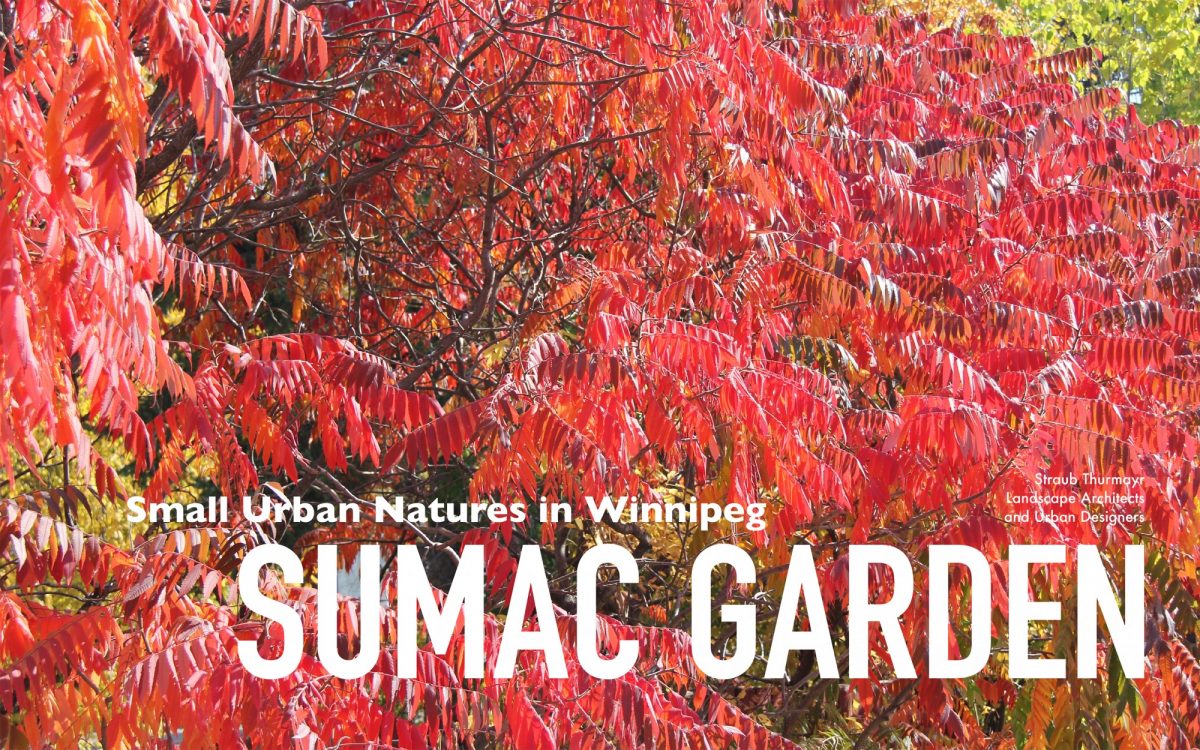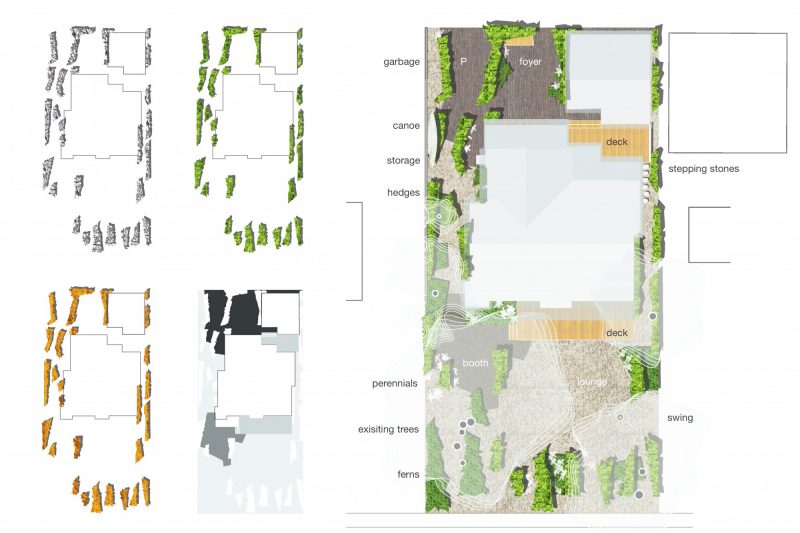
Sumacs with distinction
Great Accolade for Dietmar Straub and Anna Thurmayr, Professors of the Department of Landscape Architecture
“Our era of screens heightens the importance of physical spaces and activities where we can re-establish contact with ‘nature’. As the coronavirus lockdowns shutter public spaces, gardens hold open the possibility of immersing our bodies in the physical world. The unpretentious Sumac Garden reflects that ‘cultiver son jardin’ is possible or even desirable at a time of global pandemic” -D. Straub

We packed the garden with sumac and irregular hedges gather like strange creatures around the house. Image credits: Straub Thurmayr Landscape Architects
A house in Winnipeg had been renovated for a family of six. After the work on the house was done, it was the garden’s turn. The key actors in this garden are the plants. Their multilayered compositions set the stage for diverse atmospheres and microclimates triggering associations to nature and paradise. This unpretentious project reflects that “cultiver son jardin” is possible or even desirable at a time of global pandemic.
The branches of mature trees on the lot and neighbouring properties had formed an expansive canopy over the area. But a large elm tree infected with Dutch elm disease had to be felled, and this created a clearing bathed in light. Straub Thurmayr used a simple trick to structure the space and allow it to develop its own rhythm. Sumacs love the sunlight. Irregular hedges of smooth sumac were planted along the lines of light. These green figures gather like strange creatures around the house. They define and separate all the functional areas without creating barriers or boundaries. It is a fresh interpretation of the ancient art of topiary.
Dietmar and Anna designed and built this garden together with the family. Grandparents, parents, and grandchildren were all involved. For years, the family stored old paving stones, concrete sleepers, sand, boards and pea gravel on their property. After cleaning, all salvaged materials were recycled and reused.
On April 7th, 2021, the Canadian Society of Landscape Architects (CSLA) announced the recipients of their Awards of Excellence. The award-winning projects highlight new approaches and illustrate the levels of expertise to be mobilized to address current social, cultural and environmental challenges (Bernard St-Denis, Chair of the 2021 Awards of Excellence jury). SUMAC GARDEN in Winnipeg, designed by Straub Thurmayr Landscape Architects has been chosen by the jury for this prestigious award.
“The design represents restraint in every sense: few design moves, accomplished with the reuse of existing material and a limited palette of native plants. It cleverly combines found and collected materials; sweat equity, with the involvement of the designers; and extensive use of the common and resilient sumac. The intuitive and free-flowing layout provides a sense of ease and comfort in a semi-natural, sprawling garden space. This project teaches multiple generations about passion, technique and the deep understanding of your choices. It is philosophical, daring and fully aware of its power.” – jury’s feedback Sumac Garden
As researchers and teachers Dietmar and Anna need a constant connection with professional practice. A good eye for plants and colours, for scale and materials, for communication and drawings, for concepts and ideas, needs ongoing practice. They believe that an intelligent cross-linking of ecology and design and art and engineering will provide sustainable solutions for mankind and nature.
They believe in projects that are adventurous and experiential experiments in conformance with place, time, plants, people, materials, soil, light, water, and budget. They commonly use building materials for their projects that are leftovers the city or the adjacent landscapes produced and threw out. The controlled re-use, upgrading and transformation of materials into a new context is the key to their poetic design statements.
Processes of aging and decay, speculative projections, uncertainties, and the deliberate integration of the uncontrolled are crucial to Dietmar and Anna. They highlight gardens and open spaces as an archetypal conception of humans trying to coexist with nature and thus create a platform for the ‘post-boom generation’ in search for moments of happiness.
“As designers we have to be attentive to the subtle experiential fabric of everyday life, while being modest and frugal. In an era of overexploitation and over-consumption of the globe’s resources we have to adopt new design attitudes. This forces a radical paradigm shift for designers towards a building culture of improvisation, repairing and recycling. The innocent garden remains as an exemplary and powerful medium to promote a socially, ethically and ecologically responsible culture in environmental design practice.” -D. Straub







